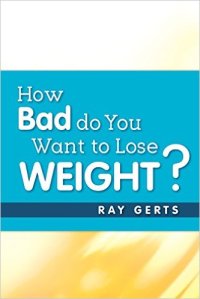BMR - Basal Metabolic Rate
I've written about this before and I get questions about this all the time, "How many calories do I need?" This post will answer the question. Losing weight is still about calories. The calories you take in every day vs. the calories your body burns. So, the big question is "How many calories does your body burn?" If you're going to lose weight you need to know your BMR (the number of calories your body burns). So, read the post below for help.
The calories you take in every day vs. the calories your body burns. So, the big question is "How many calories does your body burn?" If you're going to lose weight you need to know your BMR (the number of calories your body burns). So, read the post below for help.
Measuring a Healthy Lifestyle
Basal Metabolic Rate (BMR) Definition
Basal Metabolic Rate (BMR) Definition
Your basal metabolic rate (BMR) is the number of calories your body burns at rest to maintain normal body functions. It is the amount of calories per day your body burns, regardless of exercise. It changes with age, weight, height, gender, ethnicity, diet and exercise habits. An average BMR would be 1850 calories per day for an adult man and 1500 calories per day for an adult woman of average height and weight. Don't use the averages if you're overweight, use a calculator to get your number. Those numbers are accurate if you're in good shape and your body is functioning on all 8 cylinders. If you're overweight your body doesn't burn as many calories and your body can't burn all the calories you eat. You don't even have to be overeating, some calories your body can't use and it will store those calories in fat cells and leave them there. Some of the things we eat the body can't process and only the food or drinks that get processed will be separated and either disposed of or used by the body.
Yes, it's a little complicated but because of the things we eat, we are either functioning the way we should or not. If you aren't getting enough nutrition some of the body functions will not work properly and you could gain weight, lose weight, or your immune system becomes weak and you become ill.
This is the number before factoring in any movement, it is below even the sedentary level. Once you add in what it take to simply move around for basic functions, while still being sedentary, the average calories per day needed would be 2200 for the man and 1800 for the woman. This number is pretty accurate for a young adult in good condition and proper weight.
Calculating Your BMR
Basal Metabolic Rate Calculator: Input your height, weight, and age and adjust for your activity level to find out how many calories you can eat and maintain body weight. In order to lose weight, you would want to eat fewer calories and/or burn more calories through exercise. This calculator uses the classic Harris-Benedict equation for energy expenditure.
Basal Metabolic Rate - Burning Calories Even at Rest
You may think your Fitbit is fibbing or broken when it tells you that you've already burned a few hundred calories when you get up in the morning. What, you wonder, was I running in my sleep? No, it is simply reporting the calories you burned due to your basal metabolic rate. Normal body functions like breathing, blood circulation, and brain functions all burn calories so you do burn calories when you sleep.
Find a BMR calculator on the internet and because the answer can vary do it twice on two different sites. I found a good calculator on CalorieCount.com.
I write about losing weight, how to lose weight, what foods to eat when you're trying to lose weight and exercise that will help you lose weight. I wrote an ebook that will give you all the info in one read. It's a how-to book that also tells you about the mistakes I made and how to avoid them.
My ebook is available at www.amazon.com, www.B&N.com, iBooks (download the app), kobo.com, scribd.com and much more. My ebook will go on sale in May for $1.99. This special will only last for a limited time.








